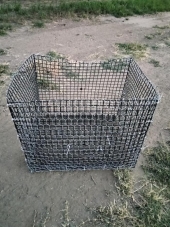
 2
2




“We can complain because rose bushes have thorns, or rejoice because thorn bushes have roses.” — Abraham Lincoln
 5
5




 1
1




Om is where the heart is.
 3
3






 1
1




"When the whole world is running towards a cliff, he who is running in the opposite direction appears to have lost his mind." C.S. Lewis
Visit https://themaineingredient.com for organic, premium dried culinary herbs that are grown, processed, and packaged in the USA.
 1
1




“We can complain because rose bushes have thorns, or rejoice because thorn bushes have roses.” — Abraham Lincoln
 1
1




 1
1




Jen Fulkerson wrote:My son says there is a rubber, or plastic bladder in the tank. ...
I think I will tell my son to bring the next couple home. It seems like it's worth a try.




Jenny Wright wrote:I think it's a great idea. I rather have rusty than galvanized since a lot of galvanized things will leach lead into the soil.
Country oriented nerd with primary interests in alternate energy in particular solar. Dabble in gardening, trees, cob, soil building and a host of others.

|
I'm a lumberjack and I'm okay, I sleep all night and work all day. Tiny lumberjack ad:
World Domination Gardening 3-DVD set. Gardening with an excavator. richsoil.com/wdg |




